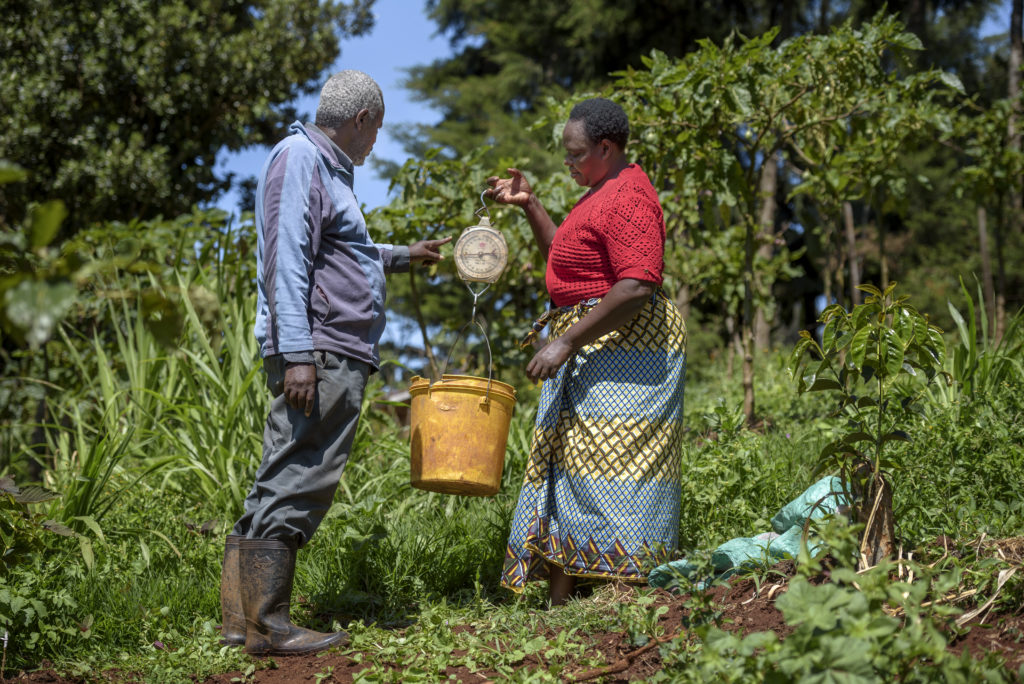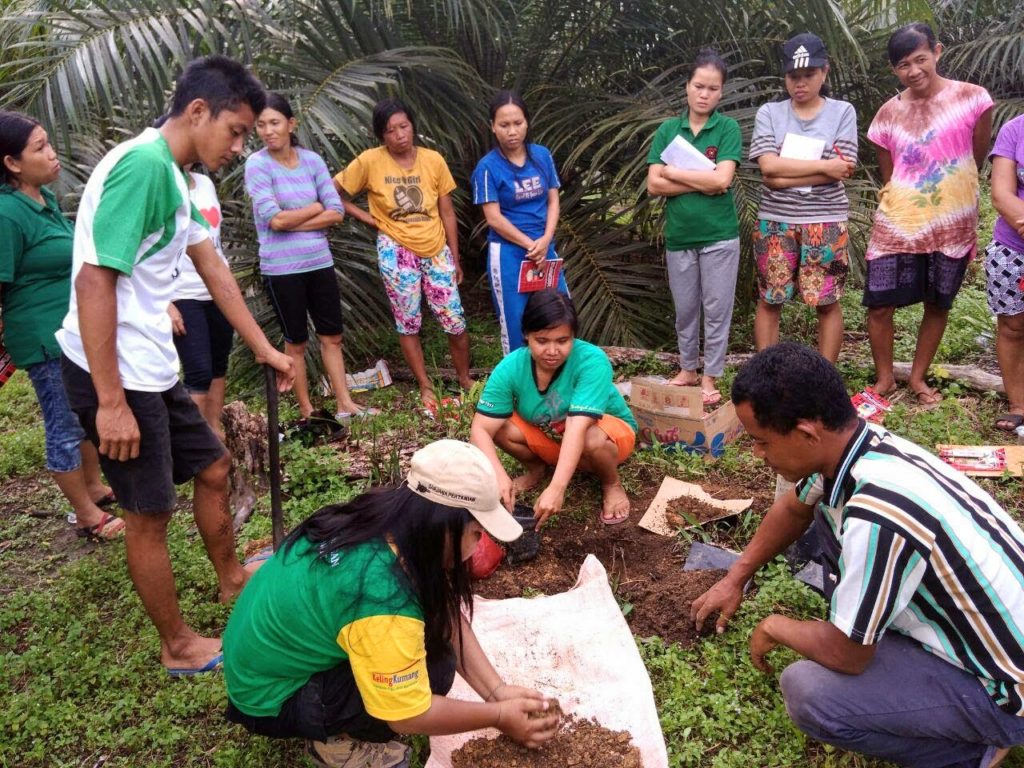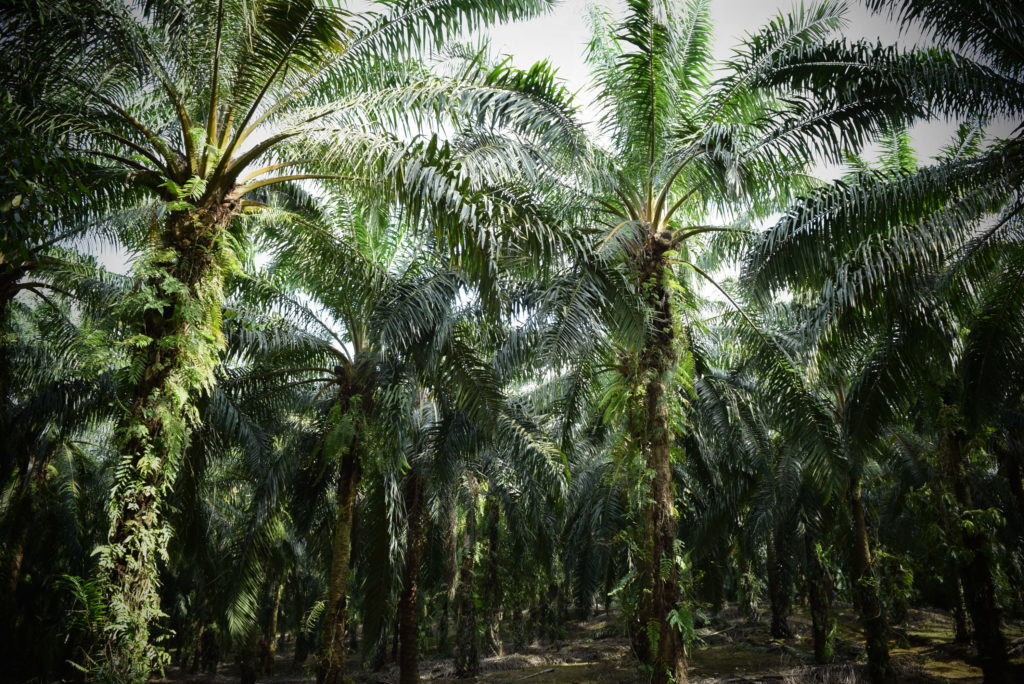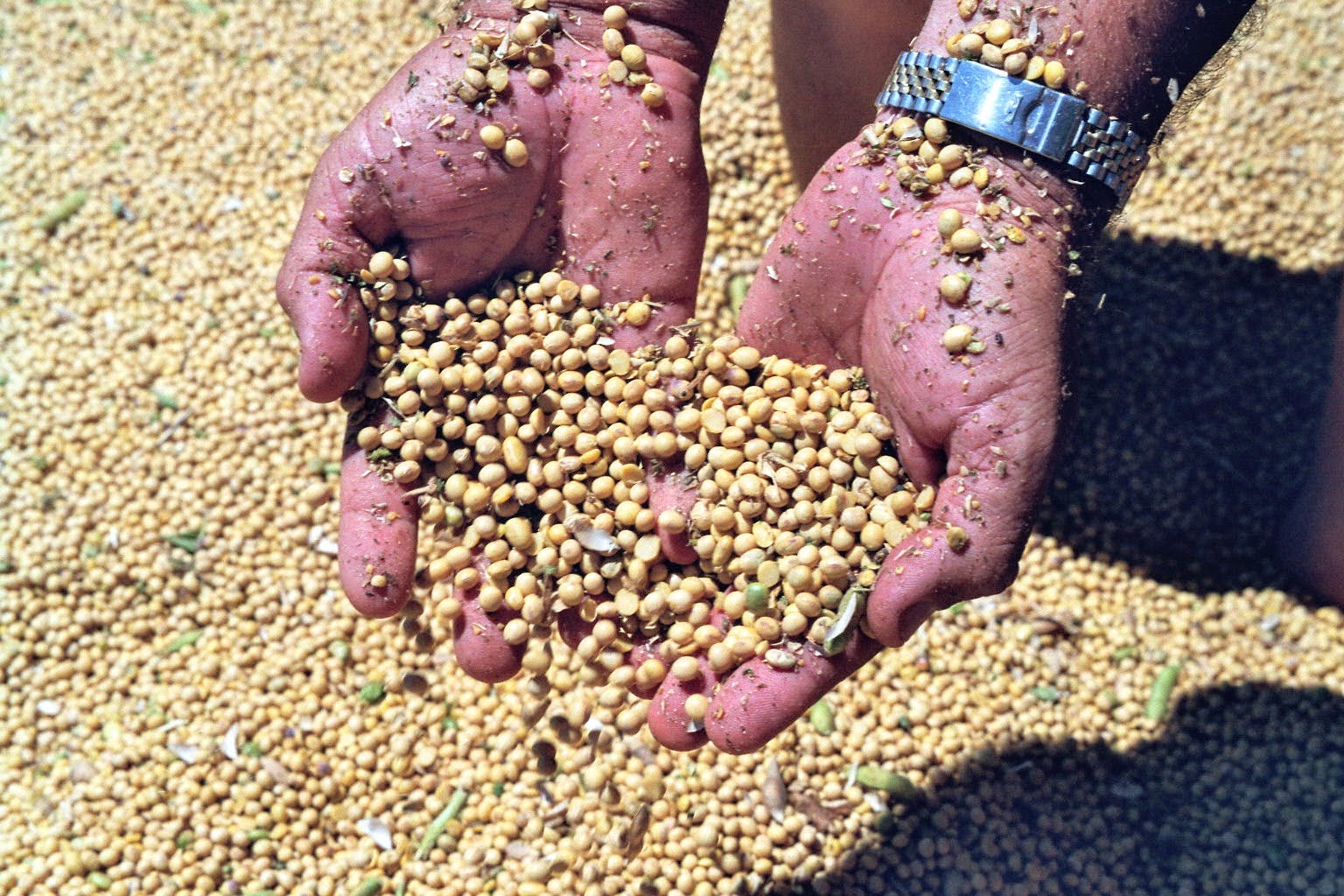
13 February 2023
Read our latest perspective on the EU’s deforestation-free products regulation
Demand side measures will only be effective when embedded in a smart mix that guarantees smallholder inclusion.
As much as 10% of global deforestation is driven by European imports. Imports to Europe, especially beef, soy, and palm oil, but also timber, coffee, cocoa, rubber, and even leather are linked to the ongoing destruction of the world’s forests. Responding to this stark reality, on 17 November 2021, the European Commission published its proposed regulation to curb deforestation and forest degradation caused by EU consumption and production.
This is Solidaridad Europe’s preliminary response to this proposal. The exact implications of the different elements of the proposal are still difficult to foresee and this response is based on ongoing assessments and discussions with colleagues in Latin America, Africa and Asia. We will therefore update this response in the coming months.
Solidaridad welcomes the EC’s proposal and celebrates that concrete actions are starting to take place to tackle global deforestation. However, in order to meet its objective, in our view reducing deforestation should be an integral part of a strategy for sustainable transformation of agricultural sectors. Legislation on deforestation can only be one piece of the puzzle. In order to be effective, demand side measures need to be accompanied by on the ground engagement with farmers. For the European legislation to meet its ambitious goals, it needs to be supported by partnerships between producing countries and the EU, and be inclusive of the realities of the smallholder farmers that produce more than 70% of the world’s coffee and cocoa and around 40% of palm oil. In South America soy and beef production, where farms tend to be large scale, still around 25% of cattle farmers in Brazil work on less than 50 ha.
The proposal will help to clean up EU supply chains by prohibiting the placing on the EU market of products linked to deforestation. But this does not necessarily mean it will effectively contribute to a reduction of global deforestation. The challenge is to combine the two. Effectively reversing deforestation requires engagement on the ground. Deforestation will not really be reduced if commodity importers move away from regions with a high deforestation risk or from (more difficult to reach) smallholders to facilitate compliance with the deforestation standard. Its impact will also be limited if the costs of complying with the regulation are passed down to smallholders forcing them to sell their produce on less regulated markets. That won’t end deforestation, just move it to another account book.
Main lines of the proposal
The regulation as proposed by the EC would require all companies importing beef (including leather), soy, palm oil, wood, coffee and cocoa to the EU market to carry out , what the EU calls, due diligence to ensure that their produce are deforestation-free and that they have been produced in accordance with the legislation of the country of production. The definition of deforestation-free sets a cut-off date of 31 December 2020. This means that no commodities and products in the scope of the regulation would be allowed to enter or exit the EU market if they were produced on land subject to deforestation or forest degradation after that date.
The mandatory due diligence system that EC proposes is combined with a country benchmarking system that will categorise each producing country as “low”, “standard” or “high” risk based on deforestation rates and other criteria such as production trends, relevant national laws, enforcement measures, bilateral agreements etc. The proposal does mention the need to engage with producing countries through partnerships and cooperation mechanisms, but without much specification.
Recognizing poverty as a root cause
The proposal notes the risk that smallholders will face specific adaptation challenges when complying with this new legislation. The Commission however considers the late cut-off date (31 December 2020) as the main measure to mitigate this challenge. Solidaridad wants to underline that this measure is far from sufficient to make the proposal smallholder inclusive.
Providing for the different characteristics of smallholders and the considerable differences in supply chain characteristics, additional sectoral regulation and/or guidance will be needed.
First of all the proposal will need to recognize poverty as one of the root causes of – smallholder driven – deforestation. Which implies that the proposal will need to contribute to the sustainable transformation of agricultural sectors resulting in improved livelihoods of smallholder families.
The proposal fails to address some of the potential unintended consequences that might lead to the exclusion of smallholders. The proposal does not include any clauses preventing the cost of compliance with the regulation to be passed down to smallholder farmers. Operators should be required to undertake reasonable efforts to ensure smallholders pay only a fair share of costs and support them in overcoming other barriers to compliance.
Risks of traceability requirements
Companies that place a product on the market in the EU will need to collect the geographical coordinates of the farm or plantation where the commodities were grown. To ensure that the products placed on the EU market came from a plot of land that is not recently deforested, operators would effectively have to physically segregate the (zero-deforestation) products. This provision may lead to substantial logistical and administrative costs. Resources that will not be used for really making changes on the ground. And there is a risk that these requirements on geolocation and segregation may put markets out of the reach for many smallholders if buyers focus on reducing their number of suppliers. Solidaridad thinks a more balanced approach, proving origin without full segregation and with progressive requirements, could be necessary.
A large part of smallholders may not be able to provide the required data – especially in the short term. In countries where land tenure arrangements are unclear and where many smallholders will have difficulty proving land ownership, they will also have difficulty providing evidence of compliance with the proposal’s legality. These risks of exclusion increase the need for a thorough ex-ante evaluation of the impacts the regulation may have for smallholders (see below).
Role of certification
Solidaridad is convinced that the EU can make greater use of credible and robust certification schemes especially those designed to support smallholders by using their expertise, information systems and verification mechanisms to support the implementation of the regulation. The role of certification has been limited to the provision of complementary information during the risk assessment phase of the due diligence process. We agree with the EC that certification schemes should not substitute the operator’s responsibility regarding due diligence. Already smallholder farmers have made significant investments to adapt to the requirements of voluntary and certification standards. Ultimately what needs to be avoided is the creation of two parallel systems with completely different demands for smallholders, shouldering them with different costs and requirements. Coherence and complementarity is needed within the smart mix.
Ambitious and tailored partnerships with producing and consuming countries

Partnerships with producing countries should be ambitious and tailored to the scale of the challenge and focus on addressing the root causes of deforestation. For that to happen the European Union and producing countries need to collaborate to ensure that the right incentives are in place to increase smallholders’ capacity to adopt sustainable practices and comply with the requirements.
Partnerships cannot be one-way vehicles to deliver policy and demands to the smallholders, rather they need to include concrete financial incentives, capacity building, facilitate access to finance and reward mechanisms for keeping forest standing (such as payments for environmental services), links to trade incentives, etc. We would like to see more of these concrete elements in the final regulation.
And, also after the first steps made at COP26, it is important that this proposal will also be included in agreements with other major importers of ‘deforestation commodities’, including the USA and China.
Including elements of continuous improvement and engagement
The notion or definition of due diligence espoused in the regulation is far from the notion of due diligence embedded in the most authoritative frameworks for responsible business conduct such as the United Nations Guiding Principles on Business and Human Rights and the OECD Guidelines for Multinational Enterprises. Under these frameworks due diligence is a continuous process that helps enterprises identify risks in their supply chain relating to human rights, labor rights and the environment with a view to ending, preventing or mitigating those risks. Disengagement is presented by these authoritative frameworks as a last resort , when everything else has been tried and failed. They are focused on promoting a trajectory of continuous and step-by-step improvement that encourages companies to engage and work with suppliers on the ground.
We believe that some of the elements of this broad approach could help overcome some of the shortcomings in the current proposal. For example disengagement from smallholders should be considered a last resort measure after failed attempts at preventing or mitigating the risks. Companies should also consider and address the potential adverse impacts of the decision of disengagement itself and be transparent about it. And elements should be added to incentivise or reward companies that support or engage with smallholders on the ground to protect and restore landscapes, through continuous engagement and step-by-step improvement, gradually raising the bar in a joint effort.
Benchmarking: avoid incentives for disengagement
The obligations for operators and Member State authorities will vary according to the level of risk that the country of production represents. What needs to be avoided is that this will be an incentive for buyers to disengage from high risk countries or regions with a large share of smallholders. This might be avoided if strong partnerships between the EU and producing countries have a strong focus on supporting smallholders farmers.
Ignoring other bioverse ecosystems
The definition for deforestation that is used in the proposal ignores other biodiverse ecosystems such as savannahs (including the ‘Cerrado’ and ’Chaco’ in South America) or peatlands. The proposal should include these ecosystems as well, to avoid undesired – and unregulated – shifts in purchasing and to protect those ecosystems.
Immediate assessment of the impact on smallholders

Article 32 of the proposal includes a commitment to undertake a general review of the Regulation within five years of the regulation entering into force. This review will include the impact of the the Regulation on farmers, in particular smallholders, indigenous peoples and local communities and the possible need for additional support for the transition to sustainable supply chains.
As the regulation risks having considerable negative consequences for (certainly resource poor and less organized) smallholders, Solidaridad urges the EC to commence the assessment of the impact of the regulation on smallholders and the possible need for additional support now, in close collaboration with producer countries and key stakeholders including smallholders. And we stress that the proposal should be adjusted and complemented with tailored accompanying measures, if the assessment shows the need for that.
For more information contact Gert van der Bijl, Solidaridad EU Policy Advisor: gert.vanderbijl@solidaridadnetwork.org

